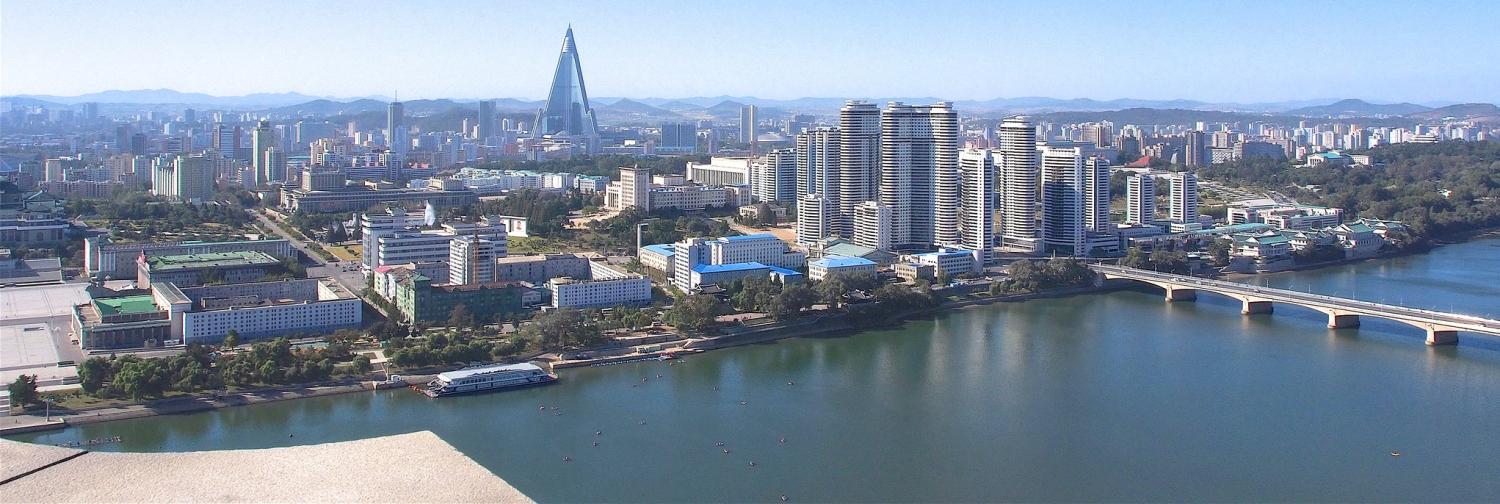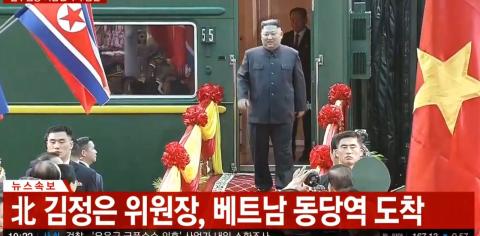Last week the Lowy Institute's International Security Program, supported by the Korea Foundation, hosted the Australia-Republic of Korea (ROK) Emerging Leaders International Security Forum in Sydney and Canberra, bringing together scholars and future policymakers focused on the bilateral security relationship. This is the fourth in a series of posts from Forum participants.
In security studies circles, when it comes to the study of North Korea, shifting the question from 'what can the international community do to stop North Korea’s belligerent, bellicose behaviour?', to 'what is the relationship between the international community and North Korea and how might this be contributing to North Korea’s belligerent, bellicose behaviour?' is still viewed as a deeply radical proposition: naive at best, and potentially dangerous. Yet these are questions that bear asking: avoiding them at the level of strategic analysis does not help assist in the development of creative and responsible policy solutions.
Strategic policy is increasingly preoccupied with how to overcome risk and uncertainty. These are concepts that feature strongly in the most recent official articulations of US security and military strategy. Yet while 'risk' and 'threat' are often used interchangeably when we talk about security, they are in fact significantly different concepts and this has important implications for the pursuit of security strategy.
A key characteristic of risk - and one that is particularly relevant when considering North Korea - is that of future uncertainty; whereas a threat assessment deals with something bad that might happen, a risk assessment must face the possibility that something unexpected may take place. This leads to policies of pre-emption and reduces the tolerance for security strategies that include within them any amount of further 'risk' or uncertainty.
Past practice of assuming that North Korea represents a risk and acts like an outlier or 'rogue' has led to a series of policy failures. This has been evident over the past eight years of ‘strategic patience’, where placing the onus on North Korea to act – an approach which assumes that the only barrier to progress lies in Pyongyang – has seen the world stand by while North Korea has developed a significant nuclear capability.
Official US statements regarding North Korea during this time have tended to emphasise the country’s non-normative behaviour, weaknesses and potential riskiness. In Washington DC, concerns about North Korea’s human rights record have seeped into strategic policy circles. While the international community should certainly be working to bring about an end to Pyongyang’s horrific human rights record, linking the two issues has not been helpful for either human rights outcomes or strategic policy making.
Risk formulations have led to a strategic rationality that views any departure from the narrow range of behaviour deemed appropriate in international negotiations as a sign that Pyongyang is not to be trusted. Unreasonable demands, from Pyongyang – such as the 2015 proposal to suspend US-ROK military exercises in return for North Korea’s adherence to international law – are interpreted as extreme provocations, rather than as a potential diplomatic bargaining point. Rather than switching gears and dealing with North Korea 'as it is, not as we might wish it to be', negotiations break down. In this mindset, sanctions and isolation are seen as the only path to stability. Such stability has, of course, has failed to eventuate. Instead we have seen further proliferation and advances in North Korea’s nuclear capability.
US President Donald Trump’s statements towards Northeast Asian security, and towards North Korea in particular, suggest a wide range of options, from engagement and neglect to containment and even aggression. While suggesting that he would be willing to sit down one-one-one with DPRK leadership, possibly even in Washington, he has also hinted he would support South Korean or Japanese nuclear armament. In addition, he has called on the Chinese to directly intervene to bring an end to North Korea’s nuclear program. In short, it is hard to predict which way US-DPRK relations are headed, given Trump’s apparent ambivalence to the entire security architecture the US has constructed in the Asia Pacific as well as the inconsistency of his various statements on North Korea over the course of his Presidential campaign. What is clear is that unless the U.S. can break free of the risk presumptions that define decision making on its North Korea policy, little progress will be made on this front.

